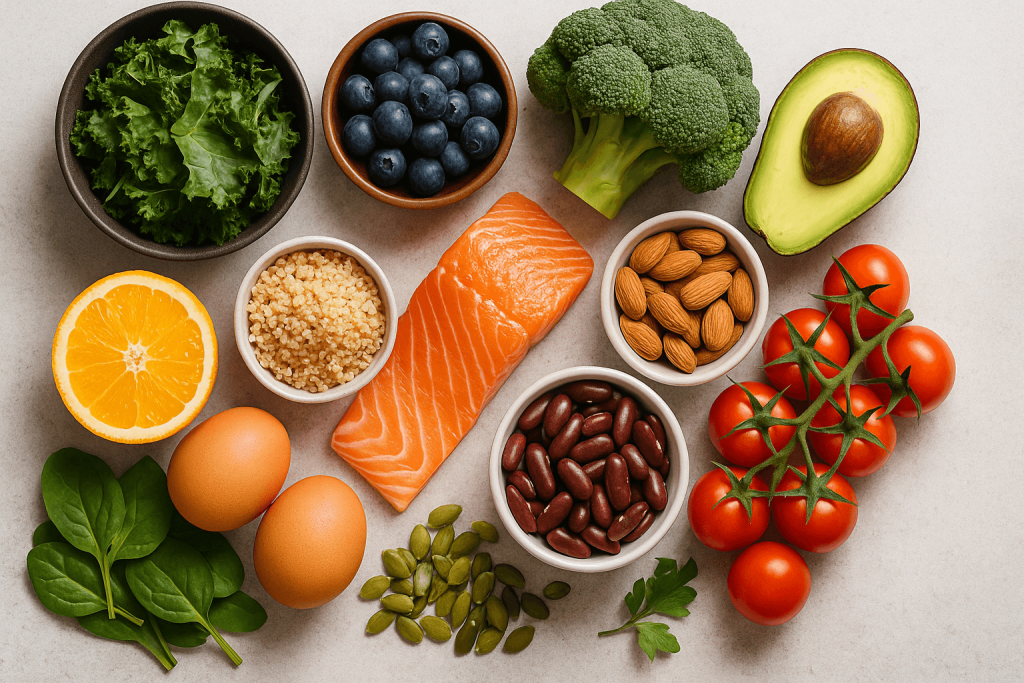Beyond Calories: Why Nutrient Density Matters More Than You Think

In a world where diet culture has trained us to count calories, many of us are missing the bigger picture — nutrient density. It’s not just about how much you eat, but what’s in your food that fuels your body, boosts your energy, and supports long-term health.
Whether you’re trying to lose weight, improve focus, balance hormones, or simply feel better day to day, the secret often lies not in eating less, but in eating smarter.
What Is Nutrient Density?
Nutrient-dense foods pack a high concentration of vitamins, minerals, antioxidants, fiber, and healthy fats into relatively few calories. Think of them as “powerful bites” — giving your body more with less.
Examples include:
- Leafy greens (kale, spinach, arugula)
- Cruciferous vegetables (broccoli, cauliflower)
- Berries (blueberries, raspberries)
- Nuts and seeds (chia, walnuts, flaxseed)
- Fatty fish (salmon, sardines)
- Organ meats (liver, heart)
- Eggs and legumes
- Fermented foods (yogurt, kimchi, sauerkraut)
Why It Matters More Than Calories
- More Satiety
Nutrient-rich foods help regulate hunger hormones and keep you full longer. - Stable Energy
Ditch the sugar highs and crashes — real nutrients provide sustained fuel. - Better Metabolism
Nutrients like magnesium, iron, and B-vitamins support your body’s ability to burn energy efficiently. - Longevity and Disease Prevention
Antioxidants and phytonutrients fight inflammation and reduce risk of chronic illness. - Mental and Emotional Health
Nutrients influence neurotransmitters like serotonin and dopamine — vital for mood and clarity.
How to Eat More Nutrient-Dense Meals
- Add greens to every meal
- Choose whole foods over ultra-processed snacks
- Try “rainbow meals” — variety equals nutrients
- Swap refined carbs for fiber-rich alternatives
- Cook at home more often using simple, whole ingredients
- Use herbs and spices for added micronutrient value
Products to Promote or Review
This topic works great for monetization through:
- Whole food supplement powders (greens, collagen, mushroom blends)
- Nutrient-dense snack brands (keto, paleo, plant-based)
- Organic spice kits or superfood blends
- Healthy meal delivery services or recipe subscriptions
- Smart kitchen gadgets (steamers, blenders, air fryers)
Final Thought
Calories are a measure of energy — but they don’t tell the full story. Your body needs more than fuel; it needs nourishment. When you focus on quality over quantity, your meals become tools for vitality, not just numbers on a label.
Choose food that gives back — not just fills space.




